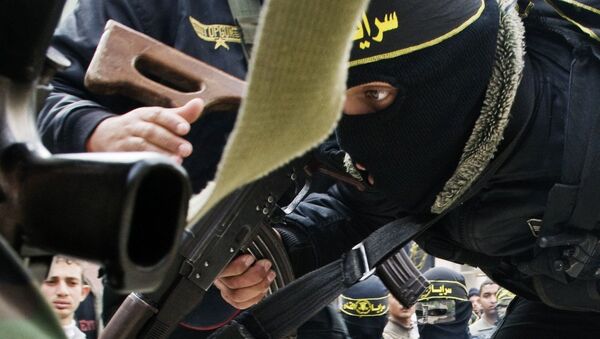MOSCOW, September 9 (RIA Novosti), Ekaterina Blinova — The authorities of the city of Aarhus, Denmark, have not arrested young jihadists returning from the war zones of the Middle East or confiscated their passports: instead, they are offering the Muslim youths the opportunity to go through a special rehabilitation program and continue their lives as ordinary civilians.
"We are experiencing more political pressure to do something more like the British," said Nielsen. "The entire political debate is rife with simplifications. You can choose to shut them out and say okay, you chose to be a jihadist, we can't use you anymore. Or you can take the inclusive way and say, okay, there is always a door if you want to be a contributing member to society. Not because we are nice people, but because we think that is what works," says Steffen Nielsen, a Danish crime prevention advisor, as cited by Al Jazeera.
While the UK leadership is inclined to consider former jihadi fighters a potential threat to domestic security, Danish officials insist that an innovative "soft-hands approach" would prove much more effective. They have already been providing medical and psychological treatment to 10 out of 15 Muslims who have returned home from the conflict zone. Aarhus officials note that the program is voluntary and is not aimed at changing the participants’ ideologies.
"A lot of guys who come home have experienced a loss of innocence and some sort of loss of moral belief. They thought they were going down there for a good cause. And what they found was thugs who are decapitating women and children and raping and killing people, and everything smells and you've got diarrhea from drinking the water and it's not the great cosmic battle for al-Sham that you'd imagined," Steffen Nielsen explains.
Denmark’s top Muslim officials have praised the decision of the city's authorities. Oussama El-Saadi, the chairman of the mosque in Grimhojvej, Aarhus, has deemed that the approach is "right."
"Don't make them feel that they have done something wrong. Give them an opportunity to come back and tell what they have experienced," said Oussama El-Saadi, the chairman of the mosque in Grimhojvej, Aarhus, in an interview with Al Jazeera.
Meanwhile a group of British Muslims who are disillusioned with the Syrian war have asked British authorities to allow them to return home, the Daily Mail reports.
"We came to fight the [Assad] regime and instead we are involved in gang warfare. It's not what we came for but if we go back [to Britain] we will go to jail," complains one of the British insurgents, as cited by the Times.
It's unlikely that the UK leadership will implement the "soft-hands approach" anytime soon, experts say. About 40 British Muslims who have recently returned from the conflict zone have already faced terrorism charges. However, Peter Neumann, a professor at The International Centre for the Study of Radicalization and Political Violence (ICSR) stresses that "less-hardened" jihadists could play a positive role, as they may tell would-be fighters the truth about the brutality of ISIS and thus prevent the European Muslim youths from joining the jihadi group. On the other hand, de-radicalization programs could help former insurgents return to normal life, experts claim, referring to the Danish experiment.

